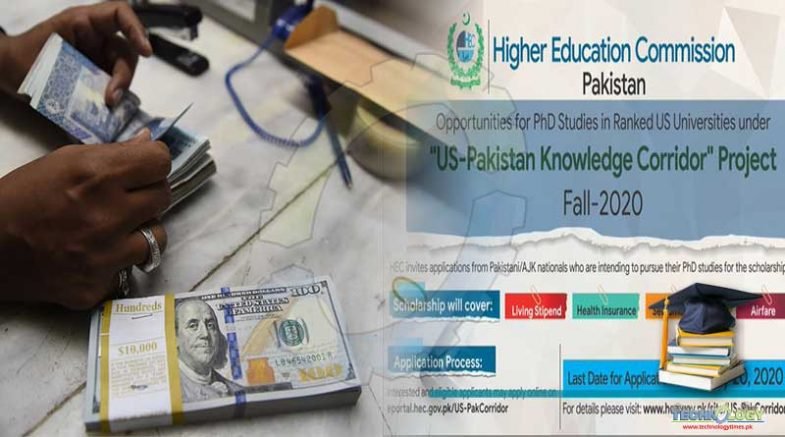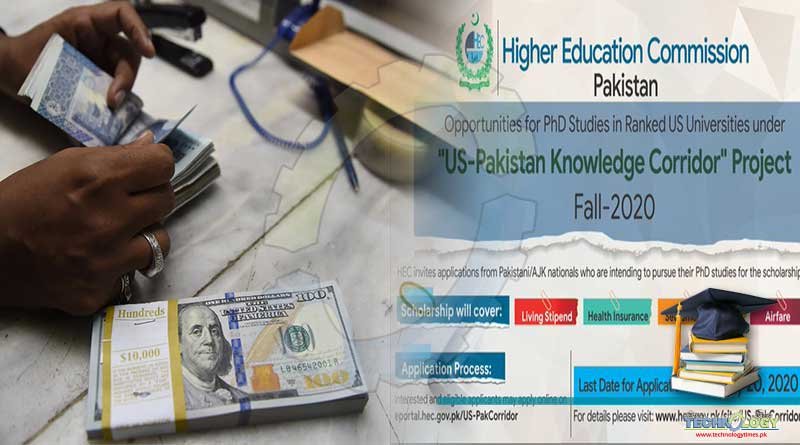United States and Pakistan established an ESTWG during the meeting of Pakistan and USA to establish US-Pakistan Knowledge Corridor.

In June 2015 the United States and Pakistan established an Education, Science and Technology Working Group (ESTWG) under the Bilateral Strategic Dialogue discussed the proposal during the meeting of Prime Minister of Pakistan and President of USA to establish US-Pakistan Knowledge Corridor. Both the dignitaries directed their respective governments to intensify their cooperation in this important framework to achieve the ambitious priority targets of developing high-level human capital envisioned in Pakistan’s policy document Vision 2025.
According to the Plan, ten thousand (10,000) Pakistani scholars will join US universities in the next ten years as an effort of the Government of Pakistan to train its faculty resources in identified subject areas.
Phase – 1 of the plan; approved by ECNEC on Jan 25, 2017, and revised later in August 2020; envisions to send 1,000 Pakistani students in Top Ranked universities of USA with Ph.D. scholarships under the project titled “US–Pakistan Knowledge Corridor-Phase -1 (Revised)”
The main objectives of the project are:
To enable the academically qualified 1,000 Pakistani students/Non-PhD faculty to continue Ph.D. studies in US Universities.
To enhance the research and academic capacity of the Higher Education Institutions of Pakistan by providing trained manpower who will improve the quality of instruction and innovative research.
To train approx: 1,000 potential candidates annually for admission in US top-ranked universities through preparatory classes for GRE and TOEFL/IELTS under “Talent Farming Scheme” of the project.
The program will develop a collaboration between Pakistani and renowned US institutions to transfer new research techniques focused on Pakistani needs.
Scholarship Provisions:
Category I: Candidates securing admission in the listed US Universities with tuition support:
Initial settlement Allowance, Monthly living stipend, Return Airfare and Health Insurance
List of the universities if available at https://www.hec.gov.pk/english/scholarshipsgrants/US-Pakcorridor/Documents/List-Selected-Universities.pdf
Category II: Candidates securing admission in US Universities falling within overall QS Ranking of 300
Monthly Living Stipend, Health Insurance, Return Airfare and tuition on a negotiated rate.
Applications open till January 10, 2021
HEC 2021-2022 US-PAKISTAN KNOWLEDGE CORRIDOR PHD SCHOLARSHIP PROGRAM
ELIGIBILITY CRITERIA
Those who satisfy all the following requirements are eligible to apply:
A. General eligibility criteria
- Pakistani/AJK nationals
- Minimum 4 years bachelor degree (4 years B.S/ B.Sc./B.E/ Equivalent – (16 years of formal education)
- Maximum age on the closing date of advertisement for the scholarship is 35 years or less. However, in the case of regular faculty members of Public Sector Universities/ Govt Colleges and researchers of R & D organization, maximum age is 40 years or less. For category-I of below, the application portal will be open round the year, in which case maximum age is calculated on the date of closing the applications advertised for the same session i.e January 10, 2021.
- Candidates applying must meet the criteria of any one of the following three categories while applying:
Category I: Secured admission along with tuition waiver in any specified US University at https://www.hec.gov.pk/english/scholarshipsgrants/US-Pakcorridor/Documents/List-Selected-Universities.pdf
Category II: Secured admission in top 300 (World QS Ranked) US University having valid GRE scores.
Category III: Having a valid GRE General Score /HAT Score (HEC does not guarantee the admissions of the applicants of this category, however, can facilitate in the placement process by sharing their details with the partner universities. candidates, in any case, will have to complete the admission requirements of the host university)
B. Academic criteria:
Maximum 1-second division and no 3rd division or grade ‘D’ in the entire academic career
Not less than 50% marks in the entire academic career
AEF formula and GRE Scores may be used while shortlisting candidates.
Originally published at HEC
